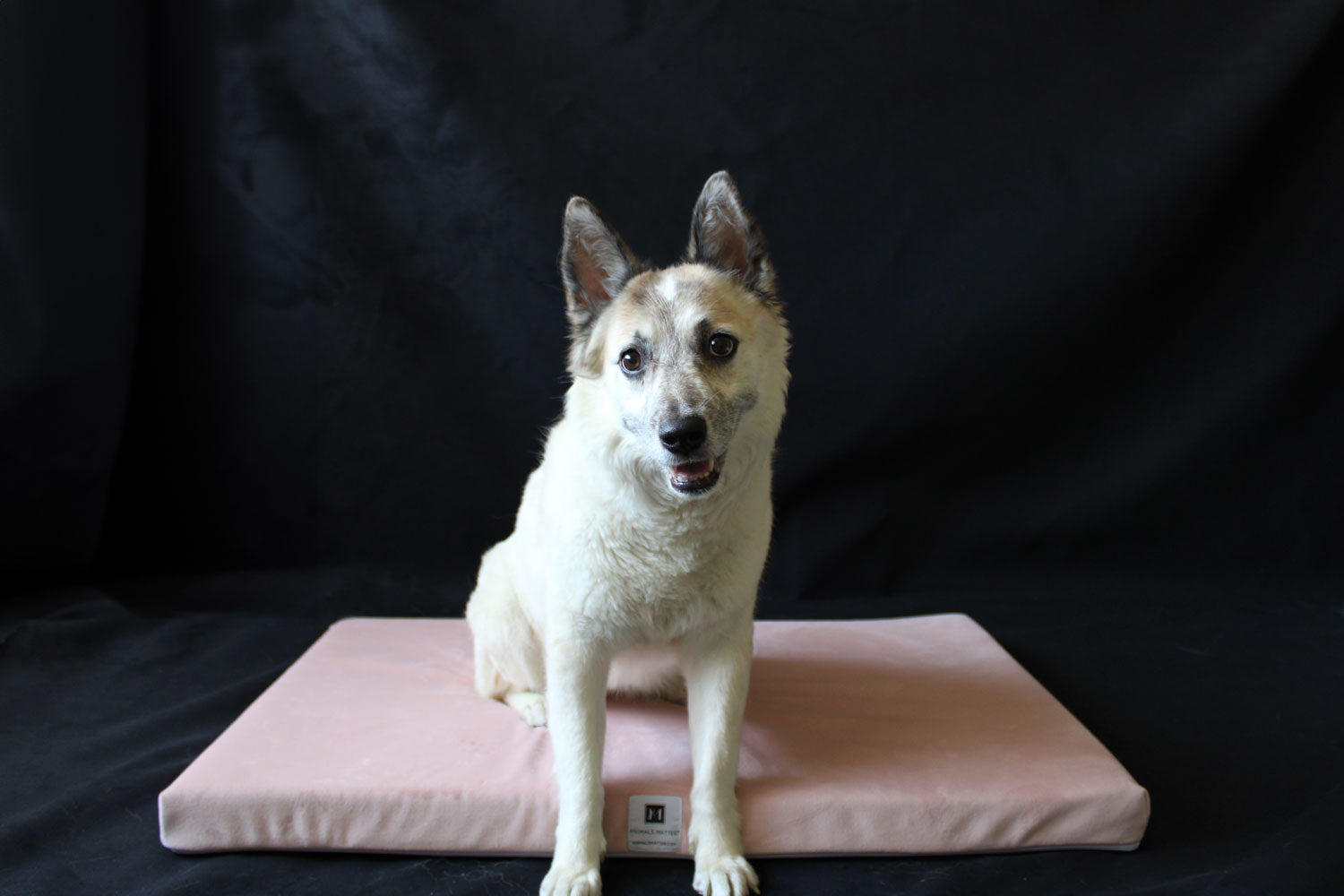The Ultimate Guide to Dog Gut Health: Natural Remedies, Probiotic Insights and Signs of Poor Gut Health

Gut health plays a critical role in preventing digestive issues, boosting immunity, and keeping your dog active. This article will help you recognize signs of poor gut health and explore natural methods to improve it. Learn the benefits of probiotics and prebiotics, and understand the gut-brain connection. Your Companion’s health starts in the gut.
Key Takeaways
-
Good gut health in dogs is essential not only for digestion but also for overall immunity, energy levels, and mental well-being.
-
Recognizing signs of poor gut health, such as chronic digestive upset, weight changes, and foul-smelling feces, is needed for early intervention.
-
Incorporating high-quality foods, probiotics, and prebiotics into a dog’s diet, along with regular exercise, can significantly improve gut biome health.
Understanding Your Dog's Gut
The canine digestive system and gastrointestinal system are a marvel of nature, consisting of various organs that work in perfect harmony. The journey begins in the mouth, where salivary glands kickstart the digestion process by breaking down food into smaller, manageable pieces. From there, food travels through the following stages:
-
Down the esophagus
-
Into the stomach, where powerful gastric acid and enzymes continue the breakdown process
-
The pancreas produces enzymes that aid digestion
-
The liver produces bile, which significantly helps in digestion
The small intestine is the next stop, where nutrients are absorbed into the bloodstream. A dog's gastrointestinal tract contains about 70% of their immune system. What remains then moves into the large intestine, which absorbs water and forms waste for elimination. The main function of the dog’s digestive tract is to break down food, absorb nutrients, and eliminate waste.
But the story doesn’t end there. Gut health is not just about digestion; it also impacts immunity, energy levels, and even mood. Understanding your Companion’s gut health can lead to better management and solutions for various health conditions. A well-balanced gut microbiome promotes longevity and vitality, making proactive gut health management essential for a happier and healthier dog. Making gut health a priority fosters overall well-being in dogs.
Signs of Poor Gut Health in Dogs
Recognizing signs of poor gut health in your dog is crucial for preventing serious health issues down the line. Chronic digestive upset, such as persistent diarrhea or alternating constipation, often signals an imbalance in gut health. Foul-smelling dog feces and excessive flatulence can also indicate inflammation or issues with the gut microbiome, which may lead to an upset stomach. Excess carbohydrates in a dog's diet can contribute to an unhealthy microbiome.
Unexplained weight changes are another red flag, pointing to digestive problems that may be affecting nutrient absorption and leading to potential health problems. Common symptoms include:
-
diarrhea
-
gas
-
bad breath
-
itching
-
acute diarrhea
-
loose stools These can all be indicators of poor gut health. Many pet owners overlook these signs, but early recognition is key to addressing and managing these issues.
Vigilance about these symptoms allows you to take steps to restore your dog’s gut health, ensuring they remain healthy for years to come.
Natural Ways to Improve Dog Gut Health
Natural improvements to your dog’s gut health are simpler than you might think. High-quality dog food with wholesome ingredients can significantly support gut health. Foods that can help balance your dog’s gut bacteria include:
-
Sweet potatoes
-
Eggs
-
Berries
-
Various vegetables
Fermented foods such as raw goat milk and beets can enhance the diversity of gut bacteria, promoting a healthy microbiome. Pumpkin is a natural source of fiber that can improve digestion in dogs. Incorporating these foods into your Companion’s diet can make a big difference in their overall digestive health.
Regular exercise also plays a role in maintaining a healthy gut. It supports digestive health and helps manage a stressful event, benefiting overall gut health and health benefits promote health.
The Role of Probiotics for Dogs
Daily use of probiotics is safe for most dogs; they help inhibit the growth of harmful bacteria by competing for the same nutrients and resources. Probiotics can be game-changers when it comes to restoring balance in your dog’s gut microbiome. These beneficial microorganisms support digestive health and can alleviate various gastrointestinal issues like diarrhea and gastrointestinal upset. By normalizing gut flora, probiotics also provide immune support and boost immunity in dogs.
Conditions like inflammatory bowel disease and intestinal inflammation can be effectively managed with the help of probiotics. Probiotics come in various forms, such as chews or powders, and can also be found in fermented foods like Greek yogurt, which can support healthy intestinal bacteria.
Adding dog probiotics to your dog’s diet can significantly enhance their health, energy levels and, overall health.
Choosing the Right Probiotic Supplement
The current recommendation for dogs is 1-10 billion CFUs of probiotics a day. When selecting a probiotic supplement for your dog, always check the labels for specific strains and expiration dates. High-quality probiotics should specify the exact strains of bacteria, as this directly impacts their effectiveness. Selecting probiotics with live bacteria ensures that the product remains effective until the shelf life.
It’s a common misconception that more probiotic strains of bacteria in a probiotic, such as Lactobacillus acidophilus, always lead to better results. In fact, having too many strains can sometimes result in harmful bacteria and helpful bacteria working against each other, reducing the overall effectiveness.
Administering Probiotics
Administering probiotics to your dog is relatively straightforward. They can be mixed with food or hidden in treats as capsules. For the best results, it’s advisable to begin giving probiotics several days before any anticipated stressful situations for your dog.
Consistency is key for probiotics. Regular use helps maintain a desirable intestinal microbial balance, keeping your Companion’s gut healthy and functional.
Prebiotics and Their Benefits
Prebiotics are nutrients found in dog food that fuel healthy bacteria. These fibers nourish good bacteria in the colon, helping to maintain a balanced gut microbiome. Prebiotics are metabolized by microbiomes to increase beneficial bacteria and produce short chain fatty acids.
Common prebiotic sources include fruit pectin, seaweed, and yeast, nourishing beneficial gut bacteria. Prebiotics like inulin and fructo-oligosaccharides can enhance beneficial bacteria growth in your dog’s gut. The fiber in prebiotics is water-soluble and can travel through the small intestine undigested to reach the colon.
Combining prebiotics with probiotics creates a synergistic effect, optimizing your Companion’s gut health.
The Gut-Brain-Skin Connection
The gut-brain axis is a fascinating communication pathway that links the digestive system and the brain, influencing emotional well-being in dogs. Behavioral changes, such as increased stress, anxiety, or aggression, can often stem from digestive discomfort. Probiotics can promote mental and emotional regulation, helping your dog feel more balanced and happy.
Research shows that up to 80% of a dog's immune system is located in the gut. Digestive discomfort can result in behavioral issues, indicating a strong link between gut health and emotional state. Dogs with skin issues, such as atopic dermatitis, often have a less diverse gut microbiome. Mild lethargy or increased thirst are also signs of poor gut health that are easily overlooked.
Understanding this connection encourages a holistic approach to your dog’s health, addressing physical, emotional, and skin health.
Supplements That Support Gut Health
Supplements also play an important role in maintaining your dog’s gut health. Digestive enzymes enhance nutrient absorption and aid in food breakdown, while fiber supplements regulate bowel movements and improve gut health.
Fish oil supplements are known to promote gut health by reducing inflammation and have anti inflammatory properties. Incorporating these supplements into your dog’s routine will support their intestinal health.
How to Maintain a Healthy Gut Microbiome
Maintaining a healthy gut microbiome for your dog involves several key practices:
-
Ensuring your dog’s diet is high in protein and low in carbohydrates promotes healthy bacterial growth and gut microbes.
-
Providing regular outdoor activity exposes dogs to diverse microorganisms that are beneficial for gut health and their microbiome.
-
Always encourage physical activity, which aids in digestion and promotes a healthy gut.
Hydration is crucial for digestion, helping transport nutrients and regulate body functions. Stress reduction is also important as it can prevent digestive disturbances in dogs.
Summary
In conclusion, gut health is a significant aspect of your Companion’s overall wellness. By understanding the signs of poor gut health, incorporating natural remedies, and using probiotics and prebiotics, you can significantly improve your dog’s quality of life.
Frequently Asked Questions
What are the main signs of poor gut health in dogs?
The main signs of poor gut health in dogs include chronic digestive upset, foul-smelling stools, excessive flatulence, unexplained weight changes, diarrhea, gas, bad breath, and itching. Monitoring these symptoms can help ensure your dog's overall well-being.
How can I naturally improve my dog's gut health?
To naturally improve your dog's gut health, opt for high-quality dog food, add fiber-rich foods like pumpkin and fermented options, and ensure they receive regular exercise and stress management. Making these adjustments can lead to a healthier digestion and overall well-being for your pet.
What role do probiotics play in a dog's gut health?
Probiotics play a crucial role in maintaining your dog's gut health by restoring the balance of the gut microbiome, supporting digestion, and boosting immunity. They can also help manage gastrointestinal issues and conditions like inflammatory bowel disease.
How do I choose the right probiotic supplement for my dog?
Choose a probiotic supplement for your dog that clearly lists the specific strains of bacteria, includes live microorganisms, and is within its expiration date to ensure effectiveness.
What is the gut-brain-skin connection in dogs?
The gut-brain-skin connection in dogs indicates that poor gut health can negatively impact their emotional well-being and lead to skin issues, such as atopic dermatitis. Maintaining a healthy gut is essential for overall health and vitality in your dog.
Subscribe
Sign up to get the latest on sales, new releases and more…
Categories
- How to Get a Fearful Dog to Trust You: A Compassionate Guide for Rescue Dogs
- What Is Dog Boarding? A Complete Guide to High-End Stays for Your Dog
- Dog UTI Symptoms: How to Spot, Treat, and Prevent Urinary Tract Infections
- Psyllium Husk for Dogs: Science-Based Benefits, Dosage and Use
- Dog Meal Prepping : A Complete Guide to Healthy, Time-Saving Homemade Meals
- Best Places to Take Your Dog on Vacation this 2026(USA Edition)
- Tails of Celebration: Working Dogs of the Lares Trek, A Silent Partnership In Peru
- 5 Easy Organic Christmas Recipes for Dogs: Simple Holiday Treats Your Companion Will Love
- The 6 Best Luxury Gifts for Your Dog This Christmas: Thoughtful Holiday Comfort That Truly Lasts
- Why Playtime Matters: The Benefits of Mental Stimulation and Playtime with Your Companion
- Tails of Celebration: The Miao Dog-Carrying Festival - A Hero's Honor in China
- A Dog-Friendly Thanksgiving 2025: Comfort, Calm, and Easy Treat Recipes
- The Best Dog Beds for Winter 2025: 5 Luxury Styles for Warmth, Comfort & Orthopedic Support
- Tails of Celebration: The Feast of Saint Hubert — Belgium's Timeless Blessing
- Halloween Safety Tips for Dogs: How to Keep Your Companion Safe This Spooky season
- Tails of Celebration: Día de los Muertos / Day of the Dead for Pets, A Festival of Memory in Mexico
- How to Care for Senior Dogs in Fall: Mobility Tips & Joint Support
- Tails of Celebration: Kukur Tihar & The Tihar Festival of Nepal
- What is a VDI Testing for dogs ? : Insights, Procedures and Preventive Measures
- Cheap Dog Beds vs. Luxury Dog Beds: The Real Cost of a $50 "Disposable" Dog Bed
- Can Dogs Have OCD? Understanding Canine Compulsive Behaviors (CCD)
- Does My Dog Like Music? Find Out What Tunes Make Your Pup Wag!
- Effective Solutions for Food Aggression in Dogs
- 7 Frozen Treats Your Dog Will Love This Summer☀️🧊🍉
- The Best Waterproof Liners for Dog Beds: Protect Against Spills, Drool, and Accidents
- How to Cope with the Loss of a Dog: A Tribute to Every Companion We Carry in Our Hearts
- Top Tips on How to Prevent Matting in Dogs
- Understanding and Managing Dogs with Hip Dysplasia
- The Ultimate Guide to Dog Gut Health: Natural Remedies, Probiotic Insights and Signs of Poor Gut Health
- The Best Supplements for Dogs: Explore Top Picks for Canine Health and Wellness
- How Often Should I Brush My Dog's Teeth? Tips for Optimal Canine Dental Health
- Ultimate Guide on How to Comfort Your Dog During Fireworks this 4th of July
- Managing a Blowing Coat: Essential Grooming Tips for Double-Coated Dogs.
- 5 Daily Habits That Boost Your Dog’s Long-Term Wellness
- Mastering Crate Training a Dog: Tips and Benefits
- Dog Car Seats vs. Seat Covers: What’s The Best Option For Your Companion?
- Best Outdoor Dog Beds: Luxury, Durability, and Unmatched Comfort
- Is My Dog Overweight? Tips to Assess and Help Your Companion
- The Best Faux Fur Dog Beds for Ultimate Pet Comfort of 2025
- Dog Running Guide: How to Start, Train & Stay Safe when running with your Dog
- Indestructible Dog Beds? The Truth Behind the Term
- Top Tips for Effective Exercise for Dogs
- Effective Dog Ear Cleaning: A Step-by-Step Guide for Maintaining Healthy Ears
- How to Manage Dog Aggressive Behaviors: Expert Tips and Advice
- Effective Canine Ear Infection Remedies: Symptoms, Causes & Treatments
- How to Make a New Dog Comfortable in Their New Home - 2025 Guide
- Signs of Dog Allergy Symptoms and How to Help and Prevent Them
- Why Does My Dog Lick Their Paws? Causes and Solutions Explained
- Dog Alzheimer's: Symptoms, Causes, and Treatment Options
- The Legacy of Comfort with the Iconic Animals Matter® Ortho Companion-Pedic® Puff Luxury Dog Bed







Leave a comment
Please note, comments must be approved before they are published